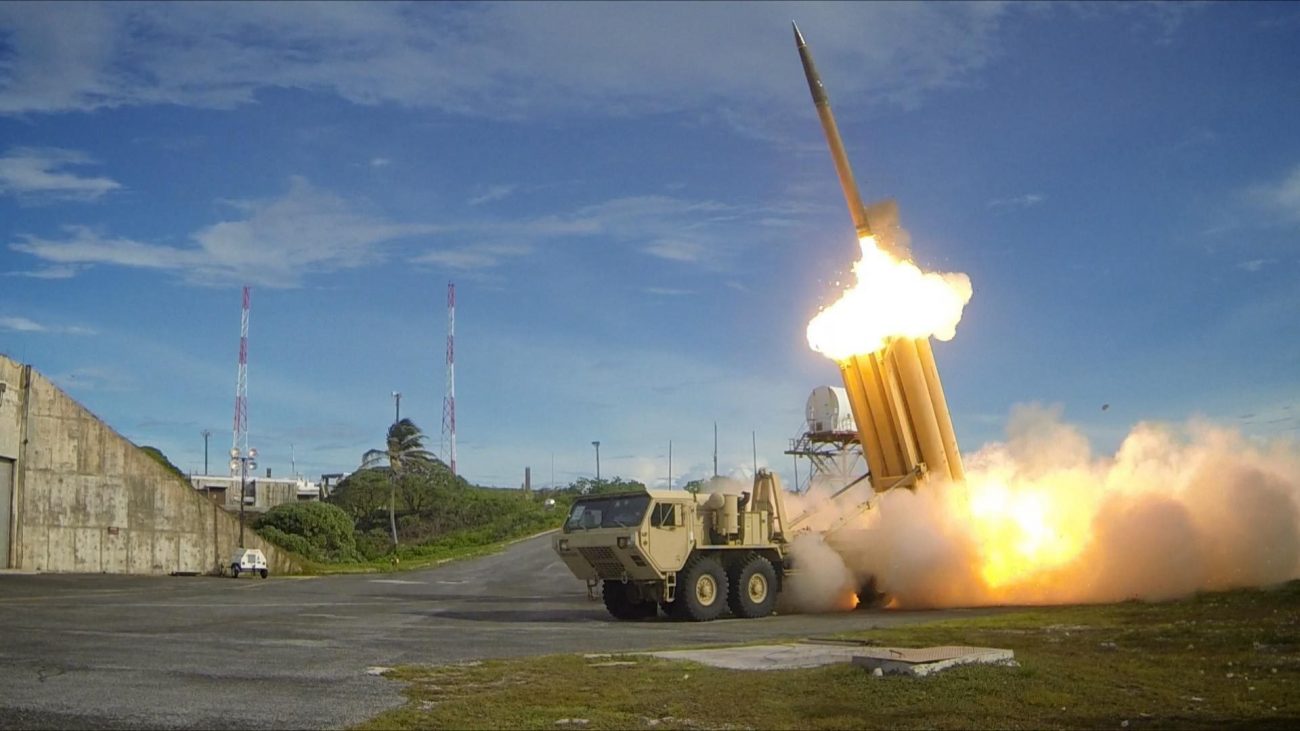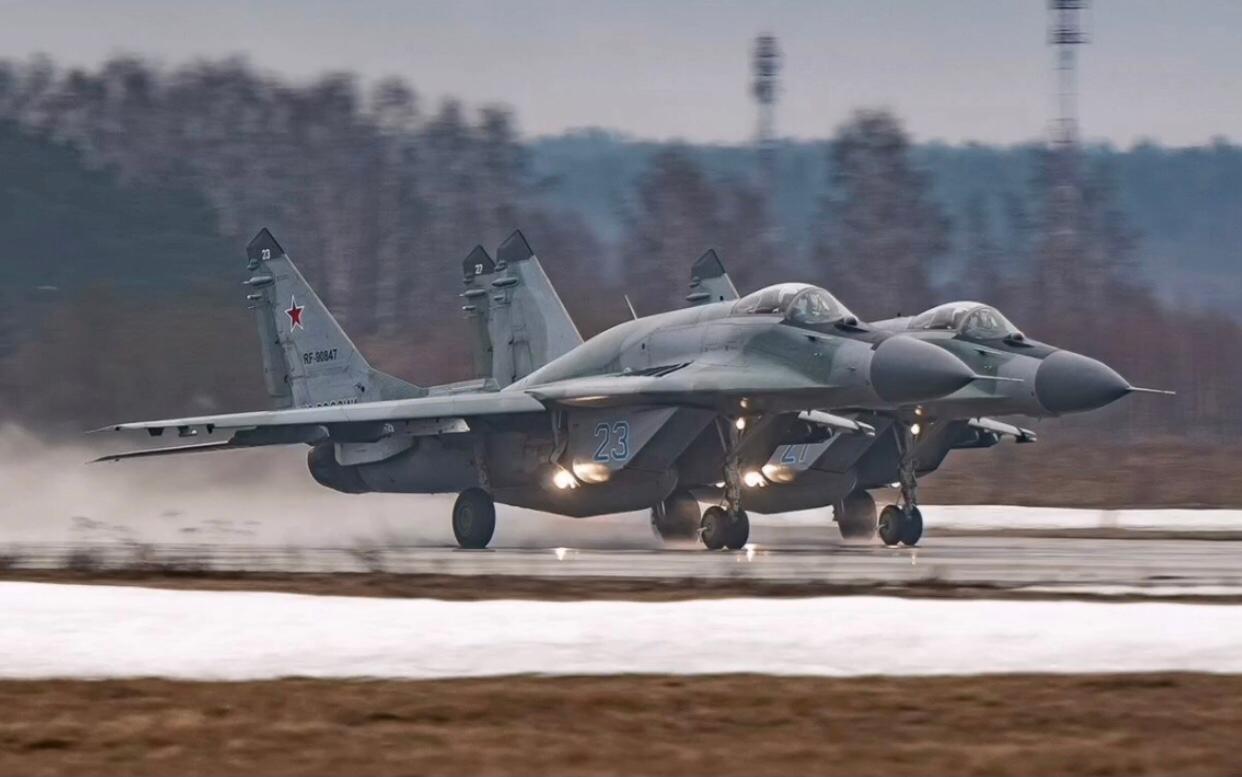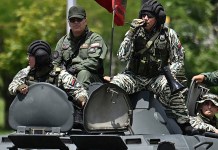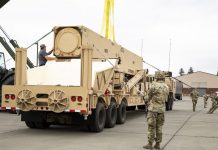Ukraine has requested the United States to deploy several battalions of THAAD (Terminal High Altitude Area Defense) anti-ballistic missile defense systems near Kharkov, TASS reported.
“Ukraine has turned to the US with a request to deploy several battalions of THAAD mobile anti-ballistic missile defense launchers with radars near Kharkov on Ukrainian territory. An AN/TPY-2 radar that makes part of the THAAD system is capable of tracking the aerospace situation over a substantial part of Russian territory and will enable Kiev and its NATO allies to ‘look deep” into the territory of Russia to a distance of up to 1,000 km,” the TASS source specified.
Earlier, State Department spokesman Ned Price on Monday refused to comment on media reports of Ukraine requesting the US to place Terminal High Altitude Area Defense (THAAD) systems on its territory amid tensions with Moscow.
“I can’t speak to moves that haven’t been announced, that are hypothetical, that may not come to pass,” Price told a press briefing.
THAAD has been designed to intercept ballistic missiles, in particular outside the atmosphere in their terminal phase. The operational range of the system totals 200 kilometers (124 miles) and is capable of detecting and tracking missiles at ranges of 870 to 3,000 km.
Russia has responded and called the United States to avoid stupidity and not deteriorate the situation further, Deputy Foreign Minister Alexander Pankin said on Wednesday when discussing reports about the potential delivery of THAAD systems to Ukraine.
“We still call on our American colleagues, with whom we are in dialogue at various levels, including the highest level, not to do stupid things, to behave prudently, not to use the situation to lead it further and further into a dead end, from which it will be difficult to find a way out. We will use further diplomatic methods on our part,” Pankin told a round table discussion at the Valdai forum.

Sanctions On Russia
German Chancellor Olaf Scholz expressing support for US sanctions against Russia were just good theater because Berlin cannot afford a long conflict with Russia disrupting its energy supplies, former EU consultant Paolo von Schirach told Sputnik.
On Monday, Scholz at a joint press conference with President Joe Biden said Germany has worked intensively with the US on preparing sanctions to impose on Russia if there is military aggression toward Ukraine. Scholz was commenting on US claims that Russia is preparing to invade Ukraine, which Moscow has repeatedly denied as a fabrication to justify NATO’s military buildup in the region.
“The resolve and unity on display right after the Biden-Scholz Washington meeting looks mostly like good theater,” Schirach, who is also President of the Global Policy Institute and Chair of Political Science and International Relations at Bay Atlantic University, said. “Biden and Scholz put up a good show at the White House. Everything was about unity and the firm determination to inflict crippling economic sanctions on Russia in case of any troop movements across the Ukrainian border.”
Although Scholz during his visit to Washington never mentioned the sanctions in the context of Nord Stream 2, Biden at the same presser said the US would help Germany fill any shortfalls in gas supplies if the pipeline operation is affected by the crisis.
Schirach warned, however, that Germany cannot afford a protracted economic war with Russia.
“Due to ill-advised green policies and other myopic energy choices such as the decision to shut down nuclear power plants, Germany is now more dependent than ever on energy imports from Russia,” Schirach said.
By contrast, Russia was far better placed than Germany to ride out the short-term costs of economic disruption triggered by US-led economic sanctions, Schirach said.
“Should it become the target of heavy economic sanctions, Russia, sitting now on a comfortable $ 620 billion cushion, will retaliate by cutting oil and gas supplies to Europe. At least for a while, Russia can afford the loss of oil and gas revenue coming from sales to Europe,” he said.

Despite Biden’s statements to the contrary at Monday’s press conference, the United States and its allies were in no position to make up the loss of Russian natural gas to power German industry, Schirach explained.
“We all know that there are no immediately available alternatives to Russian oil and gas imports. Sure, more Liquefied Natural Gas (LNG) can come for instance from Qatar and from the United States, now a major LNG exporter. But not in quantities that could make up for the loss of Russian gas,” he said.
The former EU consultant also said he doubts the Nord Stream 2 pipeline will become a permanent casualty of this crisis.
Moreover, Scholz’s new Social Democratic Party (SPD)-led, center-Left government needs to maintain good and stable relations with Moscow, he added.
“While Germany remained nominally a member of NATO, in practice, it has decided that keeping a low profile regarding the Ukrainian crisis and maintaining reasonably friendly relations with Russia serves its own interest,” he said.
Scholz had already made clear he would limit practical German aid and support for Ukraine to symbolic and humanitarian moves only, Schirach recalled.
“As far as Ukraine is concerned, the donation of 5,000 helmets apparently looks to Berlin as an adequate solidarity gesture. After all, during an earlier phase of this crisis, President Barack Obama, who also had no appetite for any involvement in Ukraine, sent to Kyiv blankets, military rations, and – socks,” he said.
- Via Sputnik News Agency
- Follow EurAsian Times on Google News




